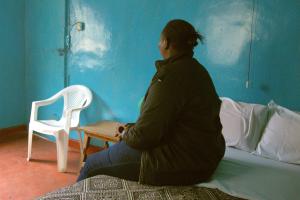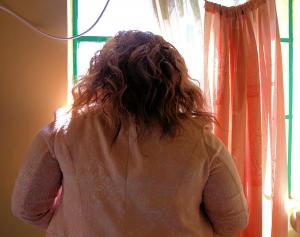Harmful UK Home Office guidelines state women trafficked from Nigeria are “wealthy from prostitution”
Home Office officials told that women trafficked from Nigeria for sexual exploitation are “held in high regard” when they return to their country of origin.
The comments are part of updated country policy and information notes on Nigeria1 that were released on June 25, 2019, to be used by Home Office UK Visa and Immigration officials when making decisions in asylum and human rights applications on whether trafficked women are at risk of harm if they are sent back.
The paragraph reads: “Trafficked women who return from Europe, wealthy from prostitution, enjoy high social-economic status and in general are not subject to negative social attitudes on return. They are often held in high regard because they have improved income prospects.”
This portrayal does not reflect the realities faced by the vast majority of sex trafficking survivors, who rarely profit from being forced into prostitution and face extensive psychological and physical trauma from being raped repeatedly day after day, compounded with other forms of abuse.
Instead, the UK government guidelines issued by the Home Office minimizes the gross human rights violations endured by sex trafficking victims, 96% of whom are women and girls2. It also encourages Home Office decision-makers to refuse asylum claims for women who have been forced into commercial sexual exploitation, placing the vulnerable at further risk.
Push factors such as poverty, gender discrimination and high rates of sexual violence remain for trafficked women who return home, and they face the additional burden of prejudice and marginalization resulting from negative social attitudes associated with prostitution.
Many suffer from Post-Traumatic Stress Disorder, often exacerbated by a lack of integrated and holistic support services to assist them in overcoming wide-ranging mental and physical health problems. If they are unable to provide economic support for their families, the associated shame and stigma can make matters worse, and it is also common for madams and traffickers to employ threats and intimidation to demand further payments of alleged debts. All this leaves women at risk of further victimization and re-trafficking.
Human traffickers, pimps and brothel owners are the ones who gain financially from trafficking for sexual exploitation, which is the fastest growing criminal enterprise in the world, netting $99 billion each year.
International women’s rights organization Equality Now3 is calling on the UK government to immediately amend its Home Office guidelines and to live up to its obligations within its own legislation, including the Modern Slavery Act 2015, as well as international law. This includes offering better protection and support services to victims of sex trafficking, and bringing perpetrators to justice.
ENDS
Author is Tsitsi Matekaire, Equality Now Global Lead on End Sex Trafficking
Equality Now is an international human rights organization that works to protect and promote the rights of women and girls around the world by combining grassroots activism with international, regional and national legal advocacy. It’s international network of lawyers, activists, and supporters achieve legal and systemic change by holding governments responsible for enacting and enforcing laws and policies that end legal inequality, sexual trafficking, sexual violence, and harmful practices such as female genital mutilation and child “marriage”.
Tara Carey
Equality Now
+44 7971 556340
email us here
Visit us on social media:
Facebook
Twitter
LinkedIn
1 https://www.gov.uk/government/publications/nigeria-country-policy-and-information-notes
2 https://www.equalitynow.org/end_sex_trafficking_campaign
3 https://www.equalitynow.org/end_sex_trafficking_campaign


